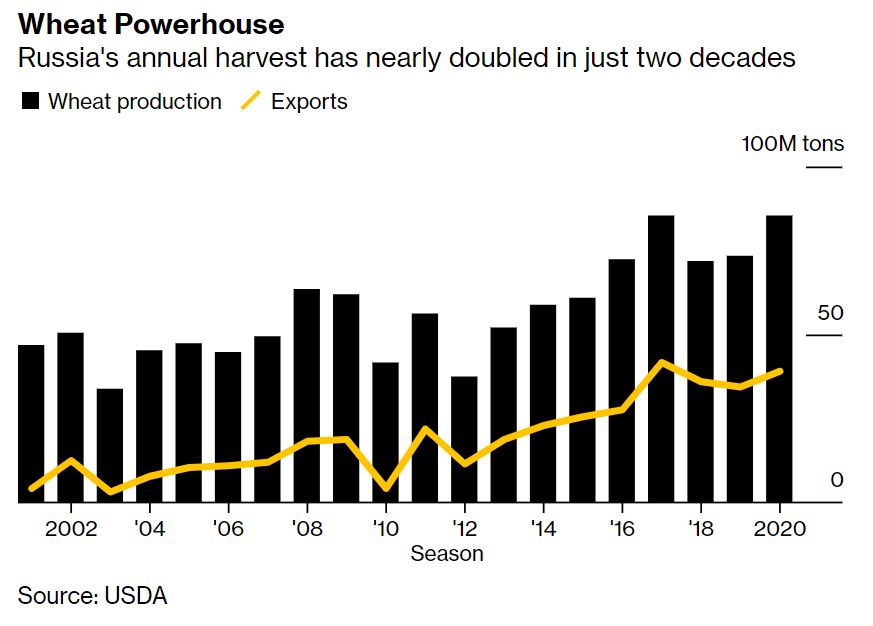1/6 As Putin grapples with nationwide protests, here's a thread about how Russia's domestic problems can have bit repercussions for the rest of the world. Read the full story I worked on with @megandurisin and @YFEDORN here: https://www.bloomberg.com/news/articles/2021-01-25/putin-thrusts-global-food-markets-into-russian-politics?sref=9FMcma5m via @markets @economics
2/6 In three weeks time Russia will slap tariffs on wheat exports in an attempt to push down domestic prices and mollify a public battered by falling incomes and rising food costs.
3/6 The move is a big deal because Russia is the world's biggest wheat exporter and global grain prices are already at a six-year high. The knock-on effect will be particularly acute for developing nations where food is a bigger share of household spending.
4/6 Russia has a history of disrupting the wheat market. The country imposed an export tax in 2007 to combat rising food costs, helping push global wheat prices to a record, and some researchers see an export ban in 2010 as an indirect contributor to the Arab Spring.
5/6 Memories of food shortages in the Soviet Union and soaring inflation after its collapse have made prices a politically sensitive issue in Russia. But the strategy is risky because the Kremlin has worked so hard to become the dominant global supplier of wheat.
6/6 “Russia wants to have it both ways,” said Abdolreza Abbassian, from the UN. “It wants to have a big chunk of the export market, and at the same time, not be exposed to problems within the global food sector. Usually such plans aren’t successful in the long-run.”

 Read on Twitter
Read on Twitter


